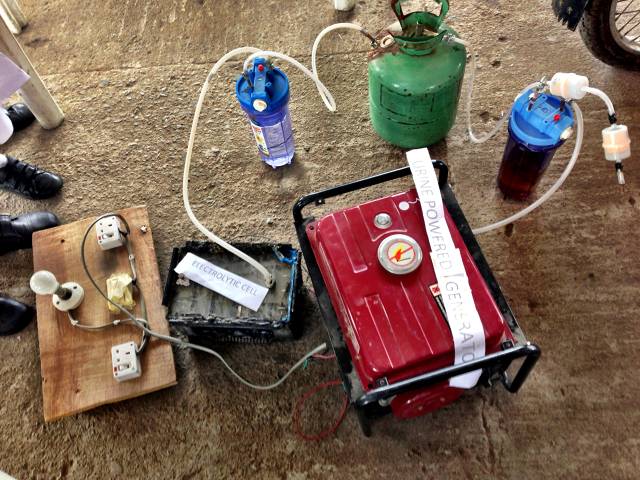‘Sola Fagorusi, our Contributor and Editor who recently represented YouthhubAfrica at a training on Social Media for Improved Governance and Citizen engagement gives an insight into what happened in Uyo, AkwaIbom.
For three days, the hash tag SocialMediaNG was the harvesting and meeting point for issues around using Social Media for Improved Democratic governance and Citizen Participation, a workshop convened by UNDP – DGD and Youth Action Initiative in Africa with partnership by European Union (EU), Department for International Development (DFID) and Canadian International Development Agency (CIDA) . While the participants at the Uyo venue were about 40, there were other participants in virtual space who used the hash tag to engage with the issues being generated after the plenary sessions.
The event which held at the Le Meridien Hotel allowed for deep engagements with the issues by key stakeholders in the civil society, especially those whose thematic areas bothered around good governance and democracy. It was a gathering of the new generation and the old generation and it helped to place issues into proper context as ideas and knowledge freely mixed during the discussions and the plenary sessions. Expectedly the event kicked off with the opening remarks by the various stakeholders involved in the project planning. The retreat aimed to project and see how the social media can be used to frame issues ahead and during the 2015 elections. UNDP-DGD Project Director, Dr. Mourtada Deme was represented by Mrs. Toyin Adewale-Gabriel also of the UNDP, who hoped that the retreat would avail the opportunity to have members of civil society acquire new skills to further the cause of good governance. Tunji Lardner of West African NGO Network, WANGOnet was first to share with participants. He gave an interesting overview of the social media landscape in Nigeria one that showed people in the entertainment industry with the highest twitter following in the country. Tunji Lardner was concerned about the quality of discussion on social media network and the need to build a cognitive continuum and prevent this generation from being another wasted one.
The Executive Director, Paradigm Initiative Nigeria, Gbenga Sesan stressed the need to identify what tools work in various situations and also argued that SMS should not be discarded as it is the basest, now one of the cheapest and effective form of reaching out. His session was titled Prospects and Challenges of Social Media as a Platform for Citizen Engagement in the Democratic Process. Samson Itodo of Youth Action Initiative Africa raised the bar of the discussion on the need for citizens to engage with the system more and this would only be possible through proper knowledge of the governance process and saw the social media as a solution in this light. Samson explored issues around raising democratic awareness within the online community.
Experiences were shared about Occupy Nigeria by Yemi Adamolekun, Project Swift Count and the Integrity Organisation on how Social media have helped the processes and the lessons from such. Day one ended with Nnenna Nwankama of West Africa Internet Governance Forum looking at the regional perspectives in citizen engagement with social media. She later shared experiences from different Africa countries and also noted that there is also a need to change the modus operandi. She offered that all meetings should not always be anti-government –‘users of social media can meet occasionally just to chat and get to share information since no one knows it all’.
Various strategies were mentioned during the retreat and partnership with the various gatekeepers like INEC and the NOA was also discussed. The 2011 election showed what social media could help achieve while acknowledging the need to bring on board the new demography of young people that would be eligible to vote in 2015. What however came out strong was the need to integrate offline and online activities for maximum impact and not just live in cyberspace alone. Discussions were also raised about the possibility of tweeting in local languages and the need to question the purpose of designs or solutions while equally defining the issues before considering the tools to use. Omojuwa Japheth, a blogger gave instances of where twitter has helped to build public consciousness around issues and how it has helped to raise funds for people in need. Despite the knowledge that Facebook and twitter were the tools most used by voters during the last election. Participants were unanimous in pushing for the need to harmonise all the social media tools available – 2Go, which is mostly used by teenagers, SMS (which is good in rural areas and can act as a backup plan in areas with poor internet service), Whatsapp amongst others.
Odoh Diego Okenyodo, Managing Director, ISU MEDIA LTD poised for Self regulation as the best form of combat against harmful online content and offered Content rating system, ‘Trust’ badges system (being reinvented by Kabissa, teaching online safety to children, Content labelling and expansion of APCON to cover online ad practitioners as solutions to harmful online issues like violence, sex, porn language, phishing, mature subjects, extremism, Identity theft and virus attacks.
While Mallam Yau, Y.Z of Centre for Information Technology and development handled the plenary session on Developing and Implementing Training Programmes to enhance knowledge and Skills in the use of Social Media, the Executive Director, Media Rights Agenda (MRA), Edetaen Ojo shared on the Social Media Space and the response to regulation. He expressed his concern about the language form being used on social media platforms and how it is impossible to legitimately argue against the regulation of social media under the present state of international human rights law and the Nigerian Constitution as any attempt to regulate social media must conform to the requirements of international human rights law both in terms of the circumstances under which regulation can occur and in the permissible scope of the regulation. He noted that everyone should have a right to hold opinions without interference. Tolu Ogunlesi’s presentation was last at the retreat. During his session on the future of the social media in Nigeria, he offered that the social media would continue to grow in the country and like every other thing; Nigerian would soon fully ‘own’ it. He opined that its use would even be more visible in the next election and noted that any form of censorship would be wrong.
The meeting had representation from MDAs, youth organisations and the growing clan of new/social media users. If the strategies from the retreat are properly deployed then in Tunji’s opinion, ‘we shall soon move from elections to governance’. The Democratic Governance for Development Project is a joint donor-funded project managed by UNDP in support of deepening democracy in Nigeria.




